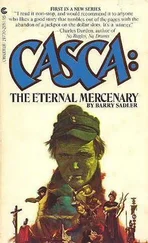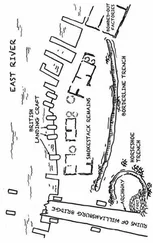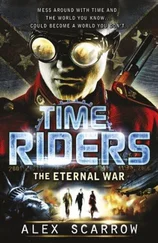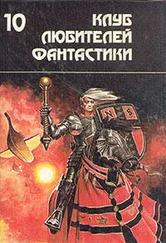In response he laughed and replied, “A parachute is a very important thing to have. I always make sure my flight’s planes are also fitted with parachutes.”
You look puzzled. You want to tell me that parachutes ought to be indispensable items? If so, you’re terribly mistaken.
We fought above the vast Pacific Ocean, usually in enemy territory. Even if we parachuted safely, we’d end up killed by the enemy anyway. And if we were returning from hostile territory and our aircraft failed, we’d be parachuting into the sea. We’d only drown or become shark food.
So at the time, none of us pilots had decent parachutes. Sorry to be indelicate, but we peed into them. Aviators spent hours inside their aircraft. When nature called, it wasn’t like on the ground where we could just take a leak on the roadside. We did in fact have paper bags to relieve ourselves in, but it was incredibly bothersome to whip it out and insert it into a bag while piloting the plane. Besides, an enemy might attack while you were relieving yourself. If anything, it was extremely dangerous to be distracted in such a way. And after you were done, you had to dispose of it by opening the canopy a bit and tossing the contents outside. But in doing so, more often than not, the bag full of urine got buffeted by the wind and you ended up drenched in the stuff. I doubt there was a single fighter pilot who didn’t get doused from doing that. So, what did we do? We urinated into the parachute. We placed it between our legs and let it gradually soak up our piss. Nearly all the pilots based at Rabaul must have done so, which is why most of the parachutes absolutely reeked. I didn’t even want to imagine what their condition was like on the inside.
To be sure, plenty of pilots on the mainland used parachutes leading up to the end of the war because they could land on Japanese soil. And since they weren’t invading, they weren’t trapped in the cockpit for hours on end, dealing with annoyances like having to go.
But Miyabe always had a parachute equipped even in Rabaul. What’s more, he would go so far as to regularly open up and inspect it just in case. It’s too bad he never had to use the damn thing.
One day I saw Miyabe folding up his parachute and said, “Since you inspect it so carefully, sir, I guess there’s no chance of it failing to open.”
Apparently oblivious to my sarcasm, he replied without hesitation, “I sincerely hope I’ll never have to use it.”
I was dumbstruck.
Oh, talking of parachutes made me remember something else. He shot and killed an American who was parachuting. This happened at Guadalcanal. After downing a Grumman, he machine-gunned the pilot parachuting away from the craft. Talk of it spread like wildfire. I didn’t see it happen myself but heard of it from one of my buddies there. There had been multiple witnesses.
When I heard what he’d done, I was disgusted. He was a disgrace to the whole Navy.
In a dogfight, once you down an enemy aircraft you’ve won. Of course an American pilot is an enemy, but is it really necessary to kill a man fleeing in a parachute from his wrecked airplane? Even in battle there is such a thing as showing mercy. What he did was equivalent to cutting down a man who’d lost his weapon on the battlefield and fallen, unable to fight. Once I’d heard what he did, I loathed him from the bottom of my heart. I’m sure there were more than a few other airmen who felt as I did.
I used my machine guns outside of dogfights, too. But it was to attack anti-aircraft emplacements or ships. I never once shot at an unarmed man. I believe only a coward would do such a thing.
Do you get it? That was the kind of man he was. He was always running from danger on battlefields but had no problem gunning down a defenseless human being. Or perhaps, it was because he was such a man that he was capable of doing such a thing.
___
Ever since I became a fighter pilot, I desired to fight bravely and die with valor in battle. In any case, I thought my life was forfeit, which was why I wanted to die heroically, like a man. I never ran away from dogfights. That’s my medal. I was never actually decorated, but that alone is my pride.
I lost an arm in an air fight at Guadalcanal in October 1942.
That day I was providing cover for land-based medium bombers, the Mitsubishi G4Ms used by the Imperial Navy. They were slow, sitting ducks before enemy fire, which is why they always had a convoy of Zeros. Zeros were originally escort fighters.
The target for the bombers that day was a fleet of enemy transport ships. We had twelve bombers and twelve Zeros. Miyabe was part of the formation.
Enemy fighters were lying in wait for us in the skies above Guadalcanal. Their interception— yougeki rather than geigeki in Imperial Navy parlance—was particularly intense that day. There must have been over forty of them. We engaged the F4Fs while defending the bombers.
We did our damnedest to protect the bombers but the enemy avoided tangling with the Zeros and, instead, targeted the bombers. While we would pursue one enemy fighter, another one would swoop in and attack a bomber. One after another, the bombers burst into flames and plummeted. It was like being hunted by a pack of wolves.
Above all else, it was the duty of the escort fighters to protect the bombers. It was more important to keep the bombers from getting shot down than to shoot down enemy planes. If we went too far in chasing hostile planes and got separated, they’d take down our bombers. Each bomber had seven crewmembers and carried ordnance intended for a strike on the enemy’s airfield. The bomber crews were risking their lives for that single attack. We escort pilots had been ordered to protect the bombers even if it meant offering up our lives. That was our mission.
Just as the bombers were about to turn course for the bombing, a gap momentarily opened in our formation. Two F4Fs swooped in. I didn’t think I would make it in time, but on the spur of the moment I decided to slip in between a bomber and the enemy aircraft. It wasn’t a conscious decision—my instincts as an escort fighter took over.
The next instant, I was fired on from above. My canopy was blown off. Something crashed into my head and for a second everything went black. But I immediately regained consciousness and looked behind me. The bomber was safe.
It was then that I noticed my left arm was killing me. I glanced down and saw that it was coated in blood from the shoulder down. I temporarily pulled away from the action to take stock of the damage. The wings and fuselage were riddled with bullets but thankfully the fuel tank and engine were still okay.
After the air raid, I flew back to Rabaul relying mostly on just one hand. Due to the pain and loss of blood I nearly passed out several times, but I willed myself to keep flying. Six bombers and three Zeros were lost that day. It had been a tough battle. Most of the Zeros that made it back were covered with bullet marks all over.
I learned this afterwards, but Miyabe’s plane didn’t have a single bullet hole in it. Even after such a ferocious battle, his plane was totally unscathed. He had been a part of the convoy. Where had he been while we were risking our lives fighting? Where was he flying around when my left arm was shot?
Ultimately I lost my arm. In the interior they might not have had to amputate it.
I was in Rabaul for just under two months. I’m not sure whether that was a lengthy or short stay. All told, my life as a pilot had lasted a year and a half.
___
Life after the war was a series of hardships. Society was cold to a fellow who’d offered up his life to his country and lost his left arm. Though I was discharged with the rank of ensign, such titles held no meaning in postwar society. Besides, I was only promoted after the war was over, as a so-called Potsdam Ensign. There were no jobs for a one-armed man. As a kid I had been thrown out of my hometown to lessen the burden on my family, but I ended coming back here after all.
Читать дальше
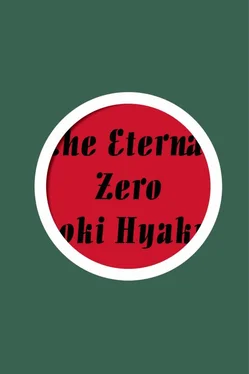
![Nick Cracknell - The Quiet Apocalypse [= Island Zero]](/books/28041/nick-cracknell-the-quiet-apocalypse-island-zero-thumb.webp)


